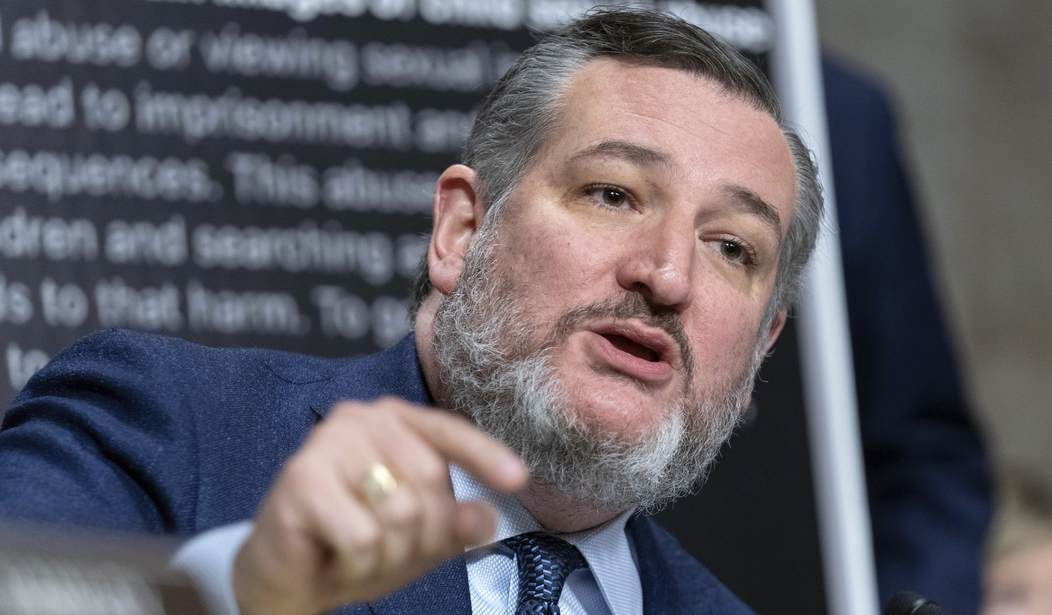Back in May, Sen. Ted Cruz and 26 of his colleagues in Congress submitted an amicus brief to the Supreme Court urging the justices to grant cert to Mexico's $10 billion lawsuit against several U.S. gunmakers and to dismiss the litigation as a violation of the Protection of Lawful Commerce in Arms Act.
Five months later (and a few days after SCOTUS did grant cert to the case), Rolling Stone has suddenly discovered that amicus brief, and is using it to attack Cruz in the final stretch of the U.S. Senate race in Texas, where Cruz is facing a challenge from Democrat Colin Allred. Though Cruz was just one of more than two dozen members of Congress who signed on to the brief, the magazine focuses almost exclusively on the Texas senator, essentially accusing him of doing the firearms industry's bidding in exchange for its support for his campaigns.
Judging by the amicus brief to the high court in his name, Cruz was eager to step up to the plate — to make expansive legal arguments on behalf of the industry. Crafted this spring, the brief insists that “Mexico’s Lawsuit Disrespects the U.S. Constitution and U.S. Law.”
The brief alleges that gun manufacturers are legally entitled to turn a blind eye to the end use of their products under PLCAA, “so long as a firearm is properly made and properly transferred into commercial channels.” The Cruz brief insists that PLCAA is, in fact, a bulletproof shield against lawsuits: “The theory of liability that Mexico argues for U.S. courts to impose upon firearm manufacturers,” it states, “contradicts the clear and unambiguous language of PLCAA precluding that liability.”
That's hardly a controversial take. Does Rolling Stone believe that the makers of Absolut Vodka or Coors beer should be held responsible for drunk driving deaths or the 100,000 alcohol-related deaths in the United States each year? Should Apple be liable for injuries caused by texting and driving? If not, then why should gunmakers be liable when a gun is used in a crime, especially when that gun was illegally obtained by the perpetrator?
Most concerning, Cruz’ brief insists that congress passed PLCAA because a profitable gun industry is essential to ”protect the Second Amendment,” reasoning that “the right is practically worthless if the firearms industry goes out of business.”
What's concerning about that? It's the truth. As the amicus brief lays out:
Congress passed PLCAA to protect the Second Amendment, as the right is practically worthless if the firearms industry goes out of business. As with the interpretation of any statute, analysis must begin withthe text of PLCAA. Congress’ enacted findings include that lawful firearm businesses whose products “have been shipped or transported in interstate or foreign commerce are not, and should not, be liable for the harm caused by” criminals; that “imposing liability on an entire industry for harm that is solely caused by others is an abuse of the legal system” and threatens constitutional rights under the Second and Fourteenth Amendments; and that such efforts “circumvent the Legislative branch of government to regulate interstate and foreign commerce[.]” 15 U.S.C.§§ 7901(a)(5), (6), (8). Congress’ express purpose was “[t]o prohibit causes of action against manufacturers, distributors, dealers, and importers of firearms or ammunition” predicated on such theories, in order “[t]o preserve a citizen’s access to a supply of firearms and ammunition for all lawful purposes.” Id.§§ 7901(b)(1), (2). PLCAA’s legislative history is fully consistent with this enacted language.
The Protection of Lawful Commerce in Arms Act was adopted on a bipartisan basis in 2005 as a response to the junk lawsuits flooding the courts that sought to blame and bankrupt the firearms industry over the actions of third parties. Cruz and his cosigners were simply pointing out the rationale for the PLCAA as expressed by Congress.
Rolling Stone bizarrely contends that the amicus brief "effectively aligns Cruz with the interests of the criminal Mexican cartels," which is utterly ridiculous. Again, if you oppose suing alcohol makers for the actions of drunk drivers, that doesn't mean that you're aligning yourself with the interests of those who get behind the wheel when they've had too much to drink.
There's a much stronger argument that the government of Mexico has aligned itself with the interests of the cartels through the "hugs, not bullets" strategy adopted by former president Andrés Manuel López Obrador and his successor Claudia Sheinbaum. As we've pointed out here before, Obrador was actually under investigation by the DEA on two separate occasions for the financial support he allegedly received from the cartels, but the Obama and Biden administrations squashed those investigations, ostensibly in the name of diplomacy.
Rolling Stone's report is nothing more than a hit piece designed to hurt Cruz as we head into the home stretch of the 2024 elections. Far from aligning themselves with the drug cartels, the signers of the amicus brief want to hold the cartels responsible for their crimes instead of pinning the blame on the firearms industry. That's a common sense position, and frankly, if Rolling Stone's piece raises any questions in the minds of Texas voters, they should ask themselves why Colin Allred didn't sign on to that amicus brief as well.









